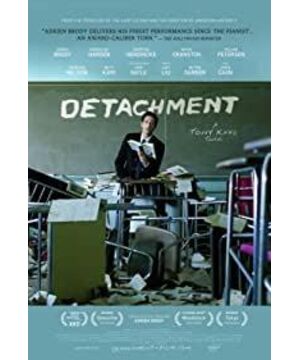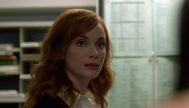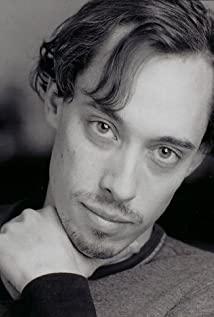This is definitely not a novel movie, whether it is the theme or the storyline, whether it is teachers and students, redemption, tragic childhood memories, etc., we can see the shadow that partially overlaps with it in other movies .
However, when these small links are connected together, and the deliberately selected dark pictures and words point directly at the center, the pessimistic and powerless emotions of the whole film are vividly swept away. And it is this surging strong pulse that reveals a deep contradiction between life and destruction.
The story is based on Henry's recollection. Through the switching of the camera, multiple sets of pictures jump out, implying that he is dictating the past to the tape after all the events have happened.
Almost everyone in the teaching profession begins with a belief in mind. Maybe it's out of a great ambition to change a student's life, or maybe it's just thinking about the teachers' two paid vacations every year. However, I still look forward to this job.
But in reality, Henry's school sucks. It's a place that seems to house prospective prostitutes, punks, mentally ill, and in short, losers. But fortunately, the film did not fall into the stereotypes. It did not try to tell how a conscientious teacher could gain the students' trust by empathizing with the students, and finally successfully transform them, so that they could rekindle the hope of life, and hold them according to everyone's expectations. Young people embark on the journey with the vigor that is unique to them.
It can even be said that Henry has never really changed any of the students according to the hopes of the world. He just dragged his childhood memory of losing his mother and stumbled forward on the road of life, and stacked up to this school. He fell in love with a fat and inferior "artist" female student, and by coincidence, he took in a young prostitute, and of course he fell in love with this little girl. In the end, the former committed suicide in front of him because of his disappointment in the world and the overwhelming pressure, while the latter was a hope and was sent to a juvenile shelter by him.
And in the middle of these trivial incidents, the violent tendencies of the students are often interspersed, their rebellion, lifeless, and even self-defeating. Teacher Zongduo also felt a deep sense of frustration, and such a sense of frustration eventually wore down their enthusiasm for life, and they became drowsy, disappointed, and insensitive. And Henry's only relative, his grandfather, finally passed away on the bed of the nursing home with a deep apology to his daughter, Henry's mother.
And Henry's moving point lies in this. He was not a saint, and his life was by no means as good and healthy as everyone hoped. He was a victim himself, and felt powerless and empty in the maelstrom of life. Therefore, he knows how to get along with these children who have lost the impulse to live, and he understands their plight and loss. Therefore, he does not have the hypocritical attitude of those well-meaning people, he is not pretentious, he does not please them, and even sometimes seems too heartless. That's because he is also a victim. It is so that he is the same as them, a true equal.
Just like Zongduo's psychiatrist himself is also a mentally ill patient, he completed self-help in the process of saving him. Henry is also in this process, trying to complete the futile self-redemption.
A touch of red in a gray area can be interpreted as violence in abstract painting. The whole film is also dominated by gray, except in the scene where Henry brings the little prostitute home, the entire background wall is red. This bright tone that suddenly appears in the dark, on the one hand, reflects the coldness of the world, on the other hand, it is a symbol of the impulse and resistance of life. Henry was really guided by the little prostitute and revealed his childhood experiences, but he was still afraid of having a lasting relationship with people. At the beginning, he told the little girl that romantic fantasies were impossible, and at the end he drove her away with his own eyes. There are too many contradictions in him, so that he can't choose mainstream expectations like a normal person.
According to his own words, you can't see me because my heart is empty.
It is precisely this kind of emptiness that he can explain to his students what it means to know what is false in "1984" and deliberately believe it, and finally believe it. The most terrifying thing is not believing in yourself, but not believing in anything.
And because of this, he deeply felt the absurdity and powerlessness of the world. In the end, he just announced the news of his last class in a nonchalant manner, and even in the words of the students' retention, he also had an expression of indifference and indifference. This is his true image, in a barren and messy school, he can't see a single person. In his mind, he just read the poem facing an empty classroom;
sinking,
showing a weak and morbid state.
View more about Detachment reviews











